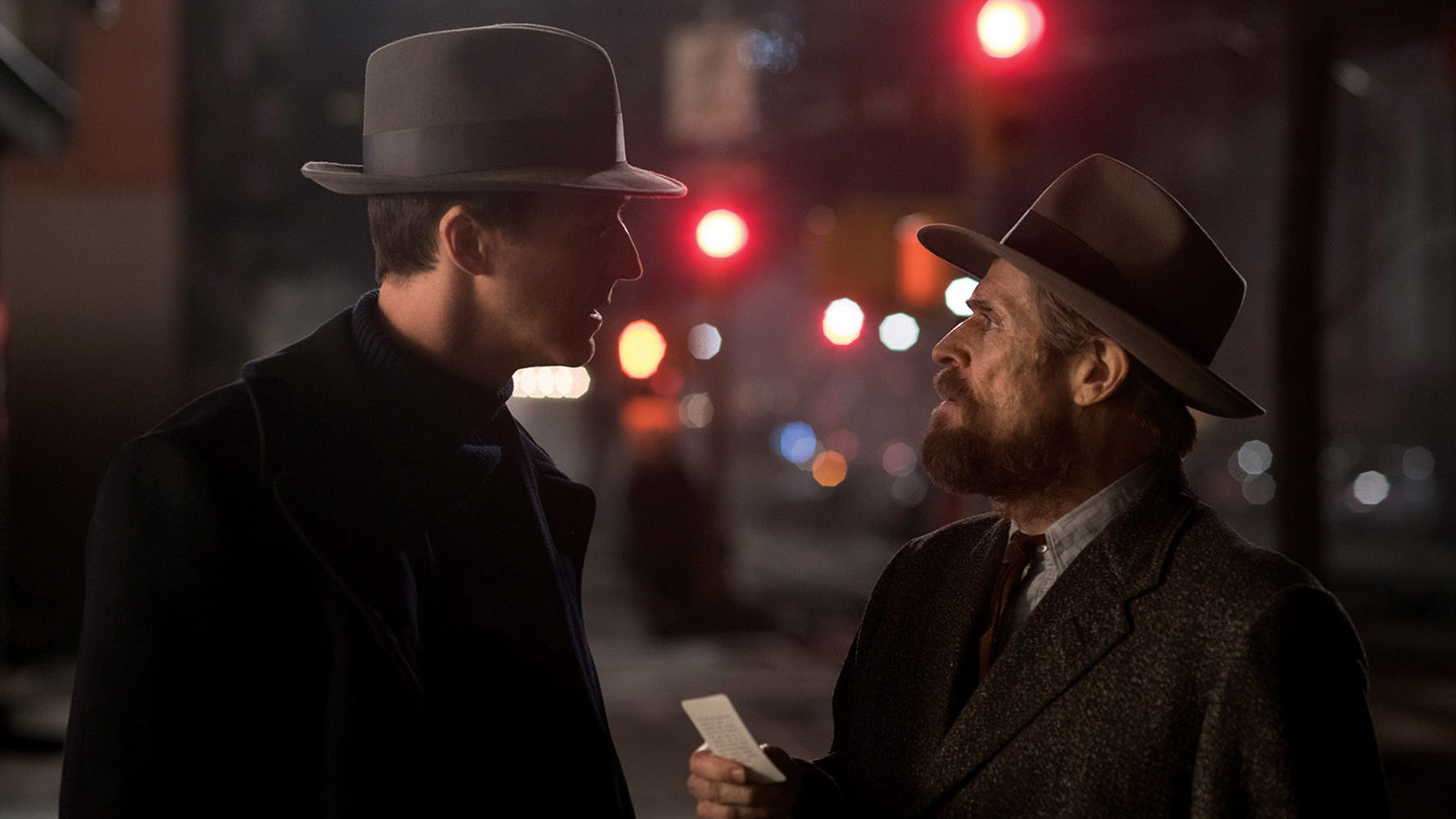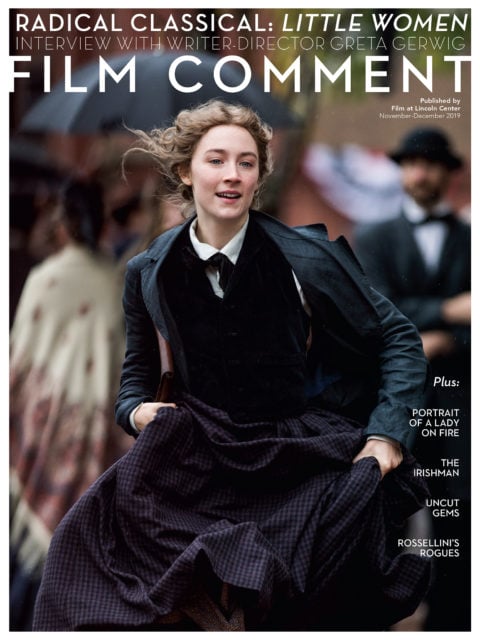
The Big Screen: Motherless Brooklyn
Shot on brownstone streets dressed in fedoras, old sedans, and curbside heaps of ’50s junk—a past you can inhabit within the bounds of the frame, and no further—Motherless Brooklyn is not just nostalgic for the New York City it recreates, but fixated on the moment of its loss. Set on the cusp of the Dodgers’ move to L.A., this noir concerns old neighborhoods being rebuilt around car usage by master-of-the-universe developers. Notes from Chinatown swirl like a saxophone solo as Motherless Brooklyn witnesses the birth of the city of the future and ponders the mystery of its parentage.

Twenty years after acquiring the rights to Jonathan Lethem’s novel, Edward Norton writes, directs, and stars in an adaptation that extrapolates freely from the book’s taut opening stakeout-gone-wrong, which sets his gumshoe Lionel Essrog pulling apart the threads of an urban-renewal scheme with connections to municipal and personal corruption. Vestigial traces of the book remain in the film: like Lethem’s protagonist, Norton’s Lionel still grew up in an orphanage, and still has Tourette’s syndrome. Lethem’s book is a knowing, contemporary take on the detective novel, filtered through a hard-boiled narrator who can’t control his own voice. Translating Lionel to film, Norton makes Rain Man comparisons inevitable, because Lionel’s disability follows the demands of the script rather than the other way around, coming and going when narratively convenient. Overwhelmed by OCD triple-taps, spasms of wordplay, and blurted taboo thoughts (which are never too problematic), Norton’s head flings up and to the side as his shoulders pinch together in spontaneous shudders of embarrassment. Lionel has a savant-like memory and a secret sadness to go along with his disability, and he’s inevitably called “sweet” by Gugu Mbatha-Raw’s activist lawyer. But no longer the spit-combed prodigy who bought the rights to the novel, Norton appears too old to have been plucked from some Catholic orphanage by P.I. mentor Bruce Willis. His Lionel can also be flirty and self-deprecating, world-weary and a wiseass; at night, he smokes dope in the lonely apartment he shares with his cat, and like Elliott Gould’s Marlowe in The Long Goodbye, he’s the only one who cares enough to follow up on a case everyone else considers cold.
Of time and the city: Norton regrafts Lethem’s pastiche back onto the ’50s—there’s a Post reporter who says “fuggedaboutit” in the film’s cast of neo-noir revenants, and one scene is even staged in the old Penn Station. Gentrification is a constant concern of Lethem’s New York fictions, and this Motherless Brooklyn features Alec Baldwin as Moses Randolph, a power broker whose utopian, racially atavistic feats of world-building—expansive parks and superhighways enabled by “slum clearance,” forced relocations, and blockbusting—are exposited in book-report paraphrases of Robert Caro’s biography of Robert Moses. (Randolph also mentions “winning” and America’s greatness, and Baldwin incorporates Trumpisms from his from his Saturday Night Live appearances: the childishly crossed arms, the pouty posture. It’s interesting, if unhelpful to the movie, to note how these twerpy affectations diminish the gravitas of the actor who, in Malice, credibly claimed to be God.)
Norton uses Tourette’s twitchiness to explore psychic restlessness more generally. Lionel’s shouted refrain “If!” reverberates through the movie; it animates his interactions with Mbatha-Raw’s character (who, like him, is mourning a long-dead mother) and suggests a New York at a historical crossroads. Norton also sees in Lionel’s mental thread-pulling the obsessiveness of an artist: when Lionel’s investigation takes him to a Harlem jazz club, the revolutionary cat identified in the credits as “Trumpet Man” (Michael Kenneth Williams) sees in his Tourettic outbursts a kindred spirit, and, in a scene that precedes Kind of Blue by a couple years, is impressed with the way Lionel worries over the phrase “So what.” Is this Norton’s tribute to Back to the Future’s “Johnny B. Goode” inception scene? The moment is sadly emblematic of the warmed-over storytelling that mars his passion project.
Mark Asch is a contributor to Nylon, Little White Lies, and elsewhere. He lives in Brooklyn.







